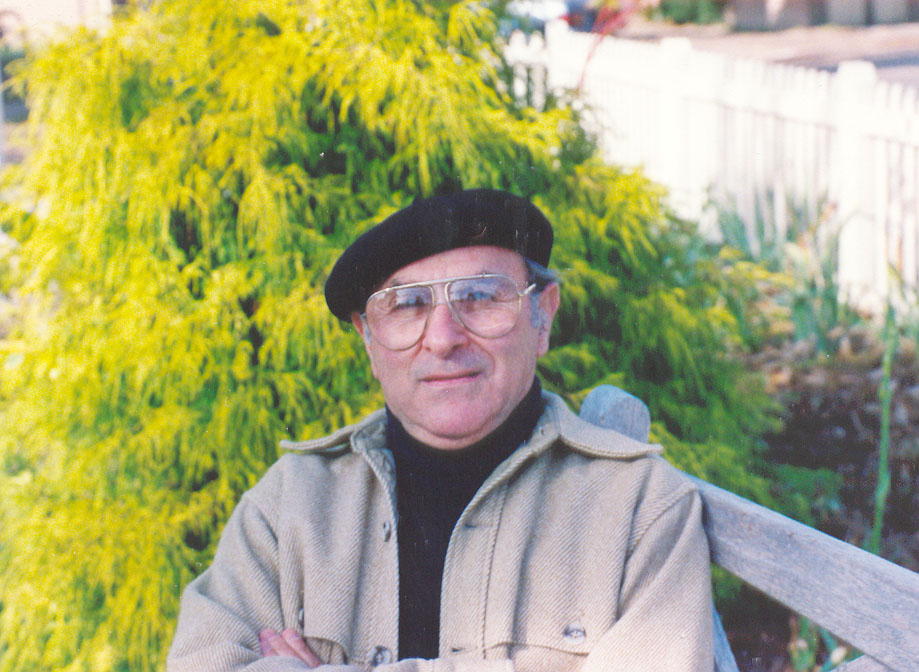
Frank Shatz
Frank Shatz lives in Williamsburg, Va., and Lake Placid, His column was reprinted with permission from The Virginia Gazette.
Edward Lozansky, founder and president of the American University in Moscow, is deeply distressed over the crisis in Ukraine.
A nuclear physicist by training, he was an exile in the United States during the Cold War. Since the collapse of Communism and the dissolution of the Soviet Union, he has earned high position in the academic world and is recognized as a vital bridge between American and Russian institutions of higher education.
He recently organized the first William & Mary/ American University in Moscow Lecture. It was presented by Joel Levine, a research professor at W&M, who for 41 years served as a senior researcher at NASA. His specialty, as a scientist, is the human exploration of Mars.
What keeps Lozansky nowadays preoccupied is a more, earthy problem. "The greatest danger is that Ukraine is edging closer and closer toward a full-scale civil war,” he said in an interview with the Gazette. He believes that blaming Vladimir Putin endlessly for the tragic events underway in Ukraine is not constructive at all.
"Instead of empty posturing, let us stay pragmatic and simply try to analyze whether there is any profit for America in quarreling with Russia,” he said. "There’s a long list of reasons why picking fight with Moscow is not wise: the need to cooperate in fighting international terrorism, on nuclear nonproliferation, on Afghanistan, Iran, Syria, North Korea, drug trafficking, developing the Arctic region, continued space exploration and global warming. None of these challenges can be met by American might alone.”
He noted that the worsening relations with Moscow also threaten to unleash a dangerous geopolitical shift: pushing Russia toward China, undoing, what for more that half a century American presidents sought to foster, continued division between China and Russia.
According to Lozansky, Ukraine can only be helped if the European Union, the International Monetary Fund, and Russia join forces to immediately provide a rescue financial package. But it would require that Kiev should heed European leader’s insistence to liquidate the armed rightist gangs, rampaging all over the country,
"Without this,” he said, "any talk of free elections and rescuing Ukraine’s economy will be so much hot air.” He pointed out that during the last 20-odd years every Russian leader, from Gorbachev and Yeltsin, to Medvedev and Putin, kept sending strong signals to Washington and Brussels about their desire to become part of the Western security and economic architecture. But they have been rebuffed.
Indeed, the former U. S. Ambassador to Moscow Jack Matlock said, "The United States insisted on treating Russia as the looser... Vladimir Putin was elected as President of the Russian Federation in 2000 and initially followed a pro-Western orientation. When terrorist attacked the United States on Sep. 11, 2001, he was the first foreign leader to call and offer support. He cooperated with U. S. when it invaded Afghanistan, and voluntarily removed Russian bases from Cuba and Cam Rahm Bay in Vietnam. What did he get in return? Some meaningless praise from President George W. Bush, who then delivered the diplomatic equivalent of swift kicks to the groin: Expansion of NATO in the Baltics and the Balkans, withdrawal from the Anti-Ballistic Missile Treaty, overt participation in the "color revolutions” in Ukraine, Georgia and Kyrgyzstan, and talk of taking Georgia and Ukraine into NATO.”
Amb. Matlock, just as Lozansky, don’t believe that we are witnessing a renewal of the Cold War. "The tensions between Russia and the West are based more on misunderstandings, misrepresentation and posturing for domestic audiences than real clash of ideologies or national interest. And the issues are far fewer and much less dangerous than those we dealt with during the Cold War,” he wrote in a Washington op-page article.
"The irresponsible calls by certain U. S. politicians for punishing Russia, Putin, and his "cronies,” or for destroying Russia’s economy, run counter to U. S. long-term interests,” Lozansky said. "As usual, the American public is much smarter than politicians. The majority prefer that Washington stays out of Ukraine’s affairs.”



_jpg/250px-ElbeDay1945_(NARA_ww2-121).jpg)





